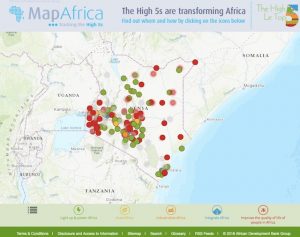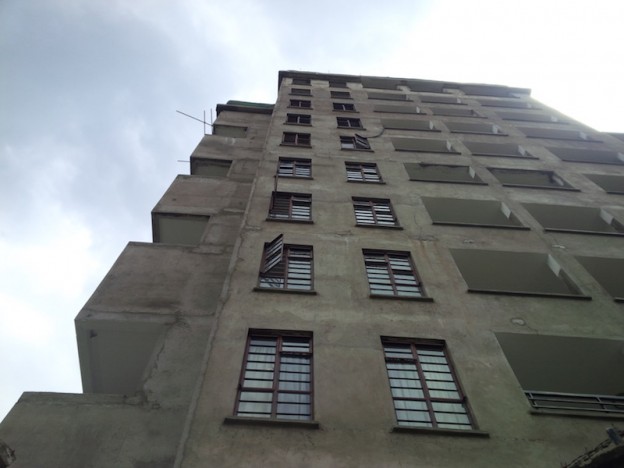Recent and upcoming startup events around Africa
AVCA Nairobi: The African Private Equity and Venture Capital Association (AVCA) cordially invites you to an informal evening of networking over cocktails on Wednesday, 22nd November 2017 5:30 – 9:00 pm Sarabi Pool & Supper Club Sankara Nairobi. AVCA Members and Qualified LPs: FREE, Non-AVCA Members: £25
ABLAA Africa: 7th All Africa Business Leader Awards will feature winners from West, Southern and East Africa at the AABLA Finale on November 30th in Sandton, which will be broadcast on CNBC Africa on December 7th. West Africa will be represented by Alloysius Attah, Co-Founder and CEO of Farmerline (Young Business Leader of the Year), Oluwatoyin Sanni, Group CEO of United Capital Group (Business Woman of the Year), Mustapha Njie, CEO of TAF Africa Homes (Entrepreneur of the Year), Guaranty Trust Bank (Company of the Year) and Herbert Wigwe, CEO of Access Bank (Business Leader of the Year).

Startups that use drones are welcomed.
The Airbus BizLab initiative in Africa, launched in August this year, targeted African startups innovating for future applications in the aerospace business. Startups that use Unmanned Aerial vehicles (UAVs), satellite Operations and Imagery, 3D Printing, Smart sensors, Internet of Things (IOT), smart energy and Artificial Intelligence (AI) were encouraged to apply. There were 11 finalists who were shortlisted included Aerobot Technologies – Kenya, ESIPPS International – Uganda, Kuunda Three Dee – Kenya, Maisha – Ethiopia, QTRON Industries – Kenya, Swahili Box – Kenya, Savannah Circuit Technologies – Kenya, Startup Lions – Kenya, Track Your Build – Sierra Leone, UAV Kenya – Kenya and the overall winner of the Airbus Bizlab was lluminum, an Agri-tech startup that uses connected sensor technology with its solar panels to automate and enable remote control of greenhouses. Illuminum greenhouses will get a 10-day trip to Europe to meet with Airbus experts as well as present to Airbus Executives and investors.
I Love Black People Tour & Pitching Competition: Blockchain startup BitMari has teamed up with the National Society of Black Engineers to bring you a unique opportunity to tackle financial challenges across the global African Diaspora and has been inviting undergraduate students, graduate student, and professionals across all fields, including developers, designers, product developers, and entrepreneurs, plus businesses that want to embrace the idea of social innovation or initiatives that combine a positive mission with business. Students can now enter the pitch competition and win up to $5,000 for sending a youtube link with a 60 seconds pitch on an idea that uses Bitcoin technology which will qualify them for a hackathon at the end of November.
Innovate Ventures, the leading Somali tech and business startup accelerator launched in partnership with VC4A, Telesom the Work in Progress! Alliance, had their second cohort of 10 startups from Somaliland and Somalia graduate from their programme. This year’s accelerator saw over 400 applications received and the seed investment given doubled from $15,000 last year to $30,000. First place went to Bilan Baby, a startup that sells baby furniture, accessories and baby clothing as well as maternity products. Bilan Baby received $7,000 in seed investment. Second place went to SAMS, an agritech marketplace for farmers and buyers and Almijet, a digital printing company who received $5,000 each. Finally, Brandkii, an online marketing and advertising startup, received $3,000. Further investment was provided to Muraadso, an e-commerce startup and last year’s winners; they received $10,000.
Kenya Bankers Catalyst Award nominees include Barclays, Commercial Bank of Africa, Cooperative Bank, Diamond Trust, Equity, KCB, Kenya Women’s Finance Trust, Lendable /Levanter, National Bank, NIC, Prime, Safaricom, Standard Chartered, and Stanbic among others.
MasterCard Foundation sponsored ‘Client at the Centre’ Prize which highlights best practices in financial services where client satisfaction is a priority. Jumo, a South African based company beat close to 100 financial services firms to win the$150,000 prize in recognition of its innovative and impactful low-cost financial services that serves poor people. The winner was picked by a 400-person audience during the ongoing Mastercard Foundation’s Symposium on Financial Inclusion 2017 Symposium on Financial Inclusion in Accra, Ghana. The other two Prize finalists were ftcash, one of India’s fastest-growing financial technology ventures which aims to empower micro-merchants and small businesses with the power of digital payments and loans, and Destacame, a free online platform in Latin America that empowers users by giving them control over their data to build their financial capabilities and to access financial products.
Orange announced the winners of the 7th Orange Social Entrepreneur Prize 2017 in Africa and the Middle East. 49 local winners who were drawn from Orange’s 17 subsidiaries in Africa and the Middle East were entered into the international contest. The winning projects this year were: 1st prize was awarded to Manzer Partazer in Madagascar, a startup that aims to reduce food waste by sharing excess food from restaurants, hotels or supermarkets. 2nd prize was awarded to City Taps which has developed a solution which bridges the gap between water services and the most disadvantaged citizens. 3rd prize was awarded to eFret.tn in Tunisia a website that links up foreign exchange senders with transport and transit professionals in Tunisia .Also a Special Content Prize was awarded to Génie Edu in Cameroon, an e-learning platform which aims to help students having problems by providing online video courses and Internet users were also invited to choose their “User Favourite” project and this was the Malagasy project Majika that facilitates access to renewable electricity and support for rural entrepreneurship.
Reuters Journalism Training Programme (Middle East & Africa): The Reuters Journalism Programme is an opportunity for recent graduates, early career reporters, or professionals with proven experience who are looking to switch careers into journalism. The programme in 2018 will consist of 6 months of formal and on-the-job journalism training, initially in our London newsroom, followed by one of our other main reporting newsrooms or bureaus in the Middle East or Africa.
USAID: Enterprises within the Kenya Innovation Engine (KIE), a USAID-funded program Feed the Future initiative have leveraged $8.2 million worth of private sector investment, and created more than 6,000 jobs at the business and farm level. In the course of implementation, in order to ensure sustainability, KIE-supported enterprises formed 56 strategic public-private partnerships with progressive local and international organizations such as Safaricom, Equity Bank, Microsoft Corporation and VISA. Over 670 innovation applications received in four solicitation waves and over $4.2M invested in a total of 26 awards made to date. Project awardees: Stage I (proof-of-concept): M-Farm; Quest Agriculture; The Real IPM Company; University of Nairobi; Virtual City; Kenya Medical Research Institute (KEMRI); Maseno University; Caytree Partners; and Kenya Network for Dissemination of Agricultural Technologies (KENDAT). Graduated to Stage II (pilot-roll-out): Arid Lands Information Network (ALIN), Kenya Livestock Marketing Council (KLMC), iProcure, Amtech Technologies; Wanda Organic; and Kenya Biologics. Direct entrants at Stage II (pilot-roll-out): Lachlan ; Indicus Kenya.; Value Farms and Takaful Insurance.
Village Capital is launching the Fintech Africa 2018 program in collaboration with PayPal. The U.S. headquartered VC firm is recruiting a cohort of 12-14 early-stage fintech startups to go through a three-month investment-readiness program, early next year. They are recruiting from Ghana, Kenya, Nigeria, Rwanda, South Africa, Tanzania, and Uganda and are looking for startups that address insurtech, pensions and savings, cooperative finance, and financial literacy; leverage data for credit scoring and consumer insights; and apply fintech to other sectors of interest: agriculture, energy, education, and health. Two startups will be peer selected by fellow entrepreneurs to receive $50,000 investment each. The deadline for applications is November 24.
XL Africa: Twenty of the most promising African digital start-ups will take part in the XL Africa residency, the flagship initiative of the business accelerator launched last April by the World Bank Group’s infoDev program. The residency will conclude with the XL Africa Venture Showcase, a regional event organized in association with the African Angel Investor Summit. With support from African investment groups, XL Africa will help the startups attract early stage capital between $250,000 and $1.5 million. Selected from a pool of over 900 applicants, the startups participating in the event are: Aerobotics (Data, South Africa), Asoko Insight (Data), Coin Afrique (Marketplace, Senegal and Benin), Edgepoint Digital (Jamii) (FinTech – Insurance, Tanzania) , Electronic Settlement (FinTech, Nigeria), Lynk Jobs (HR, Kenya), MAX (Transport, Nigeria), ogaVenue (Venue Platform, Nigeria), Ongair (SME Services, Kenya), Pesabazaar.com (FinTech, Kenya), Prepclass (EdTech, Nigeria), Printivo (Printing, Nigeria), Rasello Company (SME Services, Tanzania), Rensource (Energy, Nigeria), Sendy (Delivery, Kenya), Snapplify (Publishing, South Africa and Kenya), Sokowatch (Delivery, Kenya), TalentBase (HR, Nigeria), Timbuktu (Travel, South Africa), and Tizeti Network (Connectivity, Nigeria)



